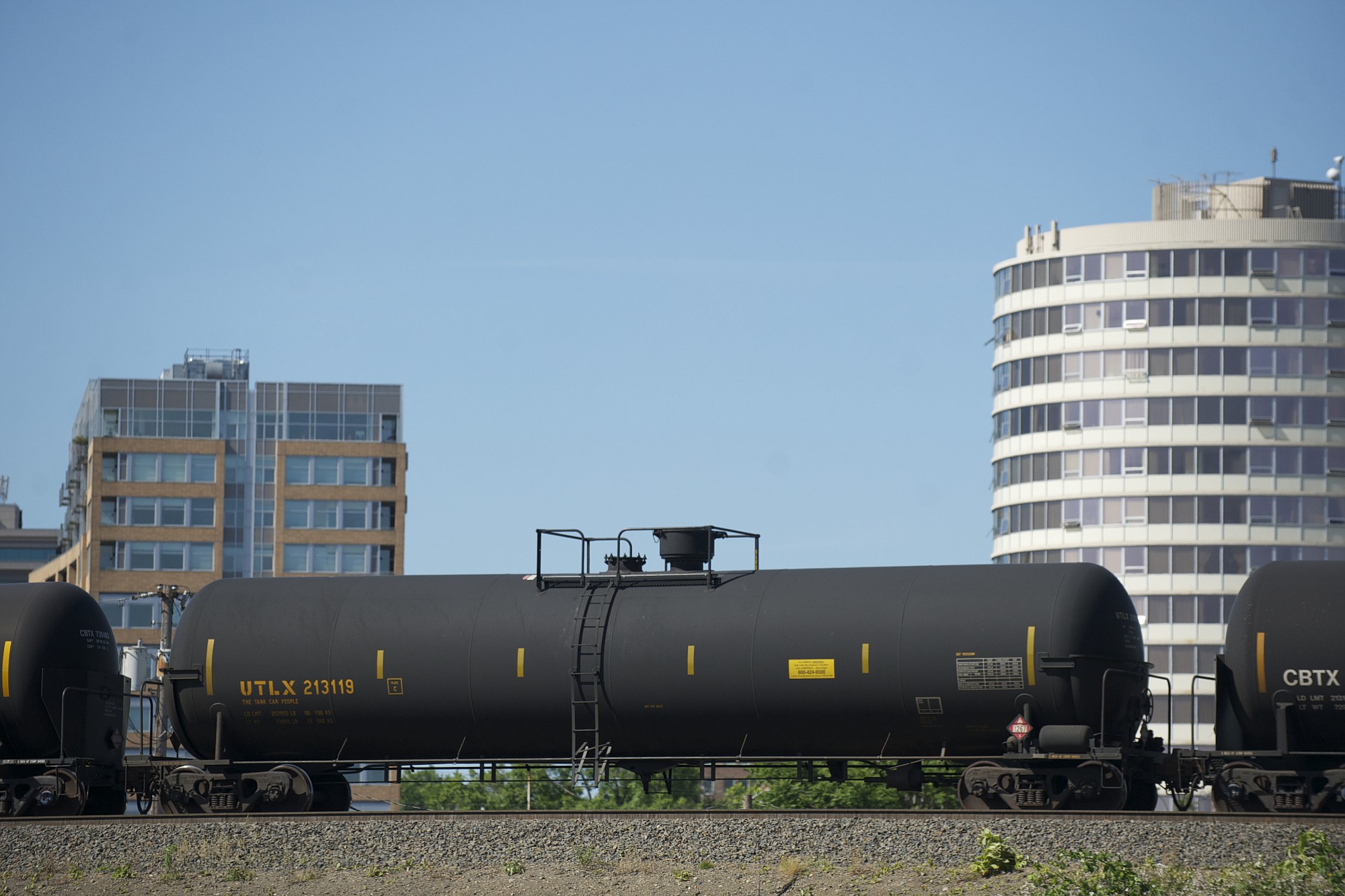Vancouver resident Eric LaBrant told a panel of lawmakers on Monday the home he shares with his two children, Carissa and Phoenix, is a block from the rail yard and less than a mile from two proposed crude-by-rail oil terminals.
“I’m asking you to think hard about our names and faces as you consider the transport of explosive commodities through our state,” LaBrant testified in Olympia.
LaBrant joined a handful of other Clark County residents and many others from around the state to testify on a measure that aims to increase oil-by-rail safety measures. Lawmakers are considering competing crude-by-rail safety measures this session.
LaBrant urged lawmakers on the House Environment Committee to strengthen Senate Bill 5057, the bill before them.
His son, he told them, is only three blocks from “tanker cars that puncture, spill and explode” while he’s at recess. “It sounds melodramatic, but this is the plain reality of what’s being forced upon us already,” he said.
Senate Bill 5057 is sponsored by Sen. Doug Ericksen, R-Ferndale, and focuses primarily on crude-by-rail and does not address oil traveling by water or pipeline. Ericksen’s measure increases a barrel tax on oil trains, requires advance notice to emergency responders and increases the minimum number of crew required on trains carrying hazardous materials.
Many of those who testified said the measure doesn’t go far enough and asked lawmakers to pass the governor-backed bill House Bill 1449. The House measure requires railroads to demonstrate to the state’s Department of Ecology they have an indemnity plan for a worst-case scenario, such as a spill or explosion. The tanker tax is also higher and the public disclosure requirements are stricter. The House measure requires 24 hours notice of what kind of and how much oil is traveling through the state. It also addresses oil traveling by pipeline and over water.
“Oil from the Bakken (oil field) is volatile, versus tar sands, which is sticky and dirty, and that advanced notice piece is important,” said Rep. Jessyn Farrell, D-Seattle, the chief sponsor of the House measure.
Rep. Paul Harris, R-Vancouver, who sits on the House Environment Committee and is in a leadership role for the House Republican caucus, said he’s determined to see a bill dealing with rail safety pass this session.
“I think we’ll modify the Senate bill and put more accountability in there and we’ll end up not with the House bill and not with the Senate bill, but somewhere in between,” Harris said.
“We have to address rail safety at some point,” he said.




